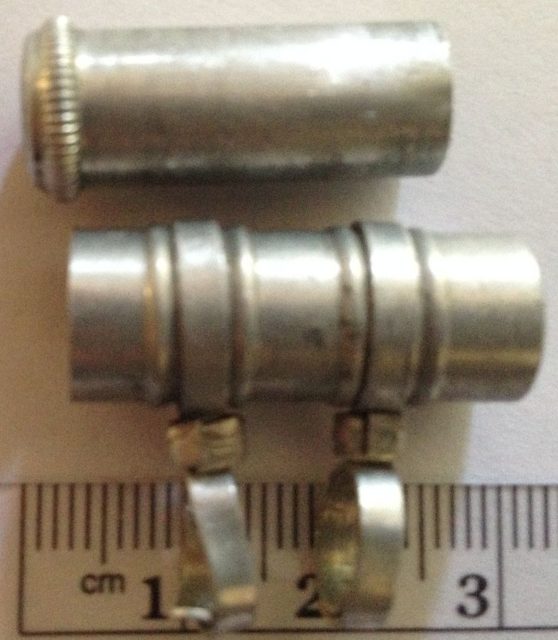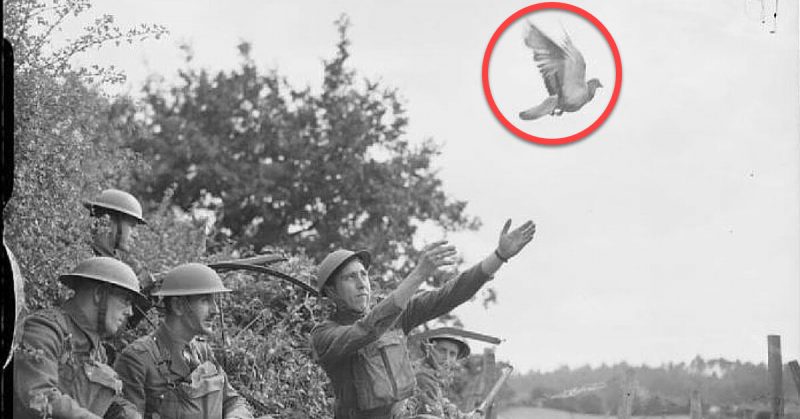Thousands of pigeon fanciers donated their birds to the war effort in World War II to assist in getting news from the front brought home.
The first news from the D-Day landings was carried by Gustav, an RAF homing pigeon who was released by the Reuters news agency correspondent Montague Taylor. Taylor brought a number of birds with him as he crossed the Channel with the Allied forces so that he could dispatch news of the important developments to the home office via the RAF.
The message was, “We are just twenty miles or so off the beaches. First assault troops landed 0750. Signal says no interference from enemy gunfire on beach… Steaming steadily in formation. Lightnings, Typhoons, Fortresses crossing since 0545. No enemy aircraft seen.”
After Gustav had flown 150 miles across the Channel in five hours and 16 minutes to his loft at RAF Thorney Island in Hampshire, his handler, Sgt. Harry Halsey, took it and passed it on to headquarters.

Gustav’s efforts earned the pigeon the PDSA Dickin Medal on September 1, 1944. The award is considered the animal version of the Victoria Cross. The citation stated, “For delivering the first message from the Normandy Beaches from a ship off the beach-head while serving with the RAF on June 6, 1944.”
Four pigeons, including Gustav, and one dog, received the PDSA Dickin Medal for their actions on D-Day. One of the other pigeons honored was Paddy, service number NPS.43.9451, for having the fastest recorded time with a message from the Normandy landings.
Nearly 250,000 birds were used by the British Army, RAF, and the Civil Defence Services in World War II. Pigeon racing was stopped and birds of prey were hunted along the British coastline in order to allow the pigeons to fly without coming to harm.
The PDSA Dickin Medal was instituted in 1943 by Maria Dickin. The founder of the UK veterinary charity wanted to highlight animals who showed bravery in the line of fire.
65 of the medals have been handed out since 1943. 32 of the medals went to pigeons, 29 to dogs, three to horses, and one to a cat.
